-
 Canada car attack suspect had mental health issues, 11 dead
Canada car attack suspect had mental health issues, 11 dead
-
Crowds flock to tomb of Pope Francis, as eyes turn to conclave
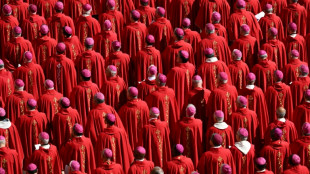
-
 Inter downed by Roma, AC Milan bounce back with victory in Venice
Inter downed by Roma, AC Milan bounce back with victory in Venice
-
Religious hate has no place in France, says Macron after Muslim killed in mosque
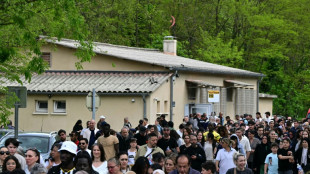
-
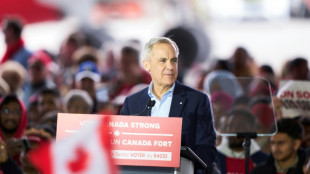 Last day of Canada election campaign jolted by Vancouver attack
Last day of Canada election campaign jolted by Vancouver attack
-
Barcelona crush Chelsea to reach women's Champions League final

-
 Nine killed as driver plows into Filipino festival in Canada
Nine killed as driver plows into Filipino festival in Canada
-
Germany marks liberation of Bergen-Belsen Nazi camp

-
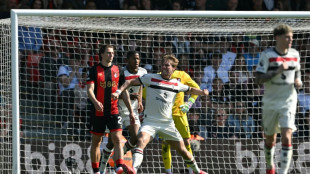 Hojlund strikes at the death to rescue Man Utd in Bournemouth draw
Hojlund strikes at the death to rescue Man Utd in Bournemouth draw
-
Zelensky says Ukraine not kicked out of Russia's Kursk
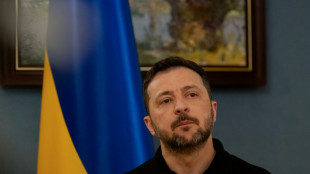
-
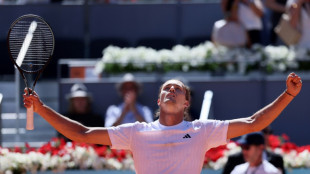 Zverev, Sabalenka battle through in Madrid Open, Rublev defence over
Zverev, Sabalenka battle through in Madrid Open, Rublev defence over
-
Ruthless Pogacar wins Liege-Bastogne-Liege for third time

-
 Bumrah claims 4-22 as Mumbai register five straight IPL wins
Bumrah claims 4-22 as Mumbai register five straight IPL wins
-
No place for racism, hate in France, says Macron after Muslim killed in mosque
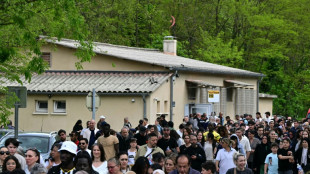
-
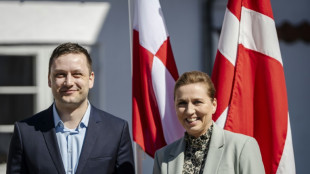 Greenland leader says Trump's threats disrespectful
Greenland leader says Trump's threats disrespectful
-
Spain's Alex Marquez celebrates maiden MotoGP in home Grand Prix
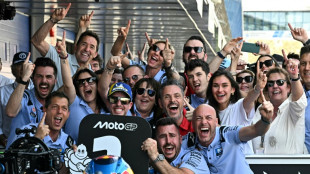
-
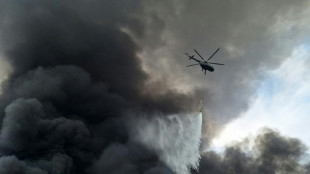 Iran's president visits site of port blast that killed 28
Iran's president visits site of port blast that killed 28
-
French rapper Jul breaks attendance record at national stadium

-
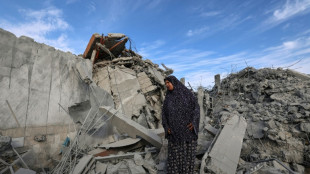 Gaza ministry says hundreds of war missing confirmed dead, toll at 52,243
Gaza ministry says hundreds of war missing confirmed dead, toll at 52,243
-
Crowds flock to Pope Francis tomb, as eyes turn to conclave

-
 'Godfather' director Coppola bags lifetime achievement award
'Godfather' director Coppola bags lifetime achievement award
-
Assefa sets world record, Sawe destroys high class field in London marathon

-
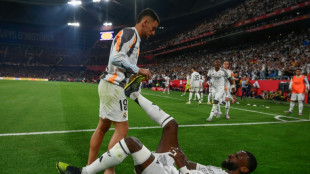 'No excuse': Real Madrid's Rudiger after throwing object at ref
'No excuse': Real Madrid's Rudiger after throwing object at ref
-
Fire blazes day after Iran port blast killed 28, injured 1,000
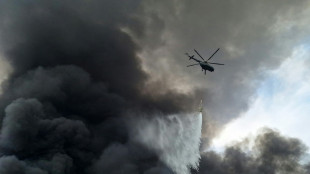
-
 Real Madrid meltdown after third Clasico defeat inevitable end to ugly weekend
Real Madrid meltdown after third Clasico defeat inevitable end to ugly weekend
-
Nine killed as driver plows into Vancouver festival crowd

-
 Crumbs! Should French bakeries open on May 1?
Crumbs! Should French bakeries open on May 1?
-
All eyes turn to conclave as Pope Francis tomb opens to public

-
 Emotional Penge bounces back from betting ban for first DP Tour win
Emotional Penge bounces back from betting ban for first DP Tour win
-
25 killed, 1,000 injured in huge Iran port blast

-
 Greenland PM visits Denmark as Trump threats loom
Greenland PM visits Denmark as Trump threats loom
-
Philippines, US test air defences as China seizes reef

-
 25 killed, fires still burning in huge Iran port blast
25 killed, fires still burning in huge Iran port blast
-
India and Pakistan troops exchange fire in Kashmir

-
 Eighteen killed, fires still burning in huge Iran port blast
Eighteen killed, fires still burning in huge Iran port blast
-
No handshake at muted India-Pakistan border ceremony

-
 Maligned by Trump, White House reporters hold subdued annual gala
Maligned by Trump, White House reporters hold subdued annual gala
-
Austria trials DNA testing to uncover honey fraud

-
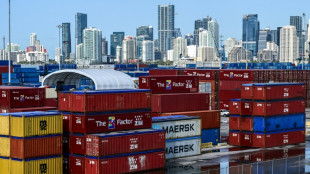 Trump trade war pushes firms to consider stockpiling
Trump trade war pushes firms to consider stockpiling
-
D'Backs' Suarez becomes 19th MLB player to hit four homers in one game

-
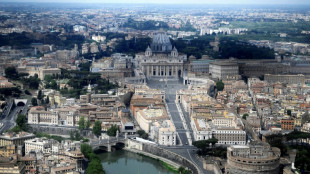 Continuity or rupture: what direction for the next pope?
Continuity or rupture: what direction for the next pope?
-
Surridge scores four as Nashville smash seven past Chicago
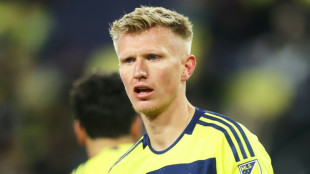
-
 Chinese tea hub branches into coffee as tastes change
Chinese tea hub branches into coffee as tastes change
-
Diplomacy likely to trump geography in choice of new pope

-
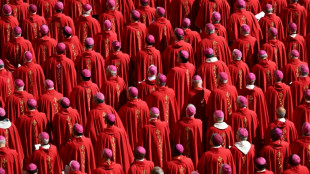 All eyes turn to conclave after Pope Francis's funeral
All eyes turn to conclave after Pope Francis's funeral
-
Doves, deaths and rations: Papal elections over time
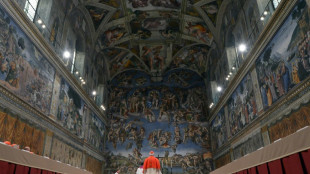
-
 Progressive Canadians say social issues blown off election agenda
Progressive Canadians say social issues blown off election agenda
-
Liverpool primed for Premier League title party

-
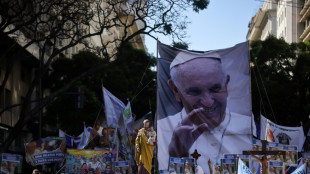 Buenos Aires bids farewell to Francis with tears, calls to action
Buenos Aires bids farewell to Francis with tears, calls to action
-
Thunder sweep past Grizzlies in NBA playoffs, Cavs on brink

Europe's Economic Self-Sabotage
Europe, once a beacon of economic prowess, is grappling with challenges that threaten its unique economic model. The European Union's economy, valued at approximately $20.29 trillion in nominal terms in 2025, stands as the second largest globally, yet it faces stagnation and competitive decline. Germany, France, and Italy, which collectively account for over half of the EU’s GDP, are pivotal to this narrative, but their struggles reverberate across the bloc.
The EU’s economic woes stem from a confluence of internal and external pressures. Germany, the bloc’s largest economy, contracted by 0.3% in the final quarter of 2023, hampered by high energy costs, a shortage of skilled labour, and chronic underinvestment in infrastructure. The automotive sector, a cornerstone of German industry, faces existential threats from Chinese electric vehicle manufacturers, who are flooding European markets with affordable alternatives. Central and Eastern Europe, heavily integrated into German supply chains, feel the ripple effects, with countries like Hungary and Slovakia at risk as demand falters.
Innovation, or the lack thereof, is a critical issue. The EU has failed to meet its target of spending 3% of GDP on research and development, languishing at around 2% for decades. This shortfall is stark when compared to the United States, where tech giants like Amazon and Alphabet dominate global innovation. Europe’s universities, with only one institution in the global top 30, struggle to drive cutting-edge research, and much of the bloc’s R&D funding is misallocated, particularly in Germany, where it is heavily skewed towards the automotive sector. This lack of diversification leaves Europe vulnerable in a rapidly evolving global economy.
Energy policy further complicates the picture. Despite a 26% reduction in greenhouse gas emissions per employed person over the past decade, 70% of the EU’s energy still comes from fossil fuels, and the bloc remains 63% dependent on imported fuel. The push for renewables, while commendable, is uneven—Sweden leads with nearly two-thirds of its energy from renewable sources, while countries like Ireland and Belgium lag behind. High energy prices, exacerbated by geopolitical tensions and the loss of Russian gas supplies, have strained energy-intensive industries, particularly in Germany.
Trade dynamics add another layer of complexity. The EU is the world’s largest exporter of manufactured goods and services, accounting for 14% of global trade. However, the spectre of tariffs, particularly from the United States, looms large. With over €500 billion in annual exports to the U.S., any imposition of tariffs could devastate European industries. The EU’s response—potential counter-tariffs or World Trade Organization complaints—may not suffice to protect its markets, especially as global supply chains face disruptions from conflicts and protectionist policies.
Internally, the EU’s single market, a cornerstone of its economic integration, is under strain. Calls for deeper integration, including a capital markets union and harmonised regulations, are met with resistance from member states guarding national interests. The EU’s budget, at €2 trillion for 2021–2027, is substantial but insufficient to address cross-border challenges like defence or green energy transitions. Moreover, the Council of Ministers’ veto system hampers swift decision-making, stalling progress on critical issues like a unified defence policy or fiscal coordination.
The EU’s social model, with 26.8% of GDP spent on welfare in 2023, is a point of pride but also a burden. High public debt in countries like Greece, Italy, and France, all exceeding 100% of GDP, limits fiscal flexibility. Austerity policies in the past have stifled growth, and the bloc’s projected population decline—to 420 million by 2100—raises concerns about sustaining this model amid an ageing workforce.
Geopolitical fragmentation exacerbates these challenges. The EU’s trade openness, with extra-EU trade exceeding 40% of GDP, makes it vulnerable to global disruptions. Initiatives like the Global Gateway aim to build resilient supply chains, but they compete with China’s Belt and Road and face internal coordination hurdles. Meanwhile, the euro, the world’s second most traded currency, is under scrutiny as global debt levels soar and the U.S. dollar’s dominance raises questions about financial stability.
Europe’s tourism sector, a bright spot, underscores its cultural and economic allure, accounting for 60% of global international visitors. Yet, even this strength is at risk from economic uncertainty and potential trade wars, which could deter visitors and disrupt the 1.1 billion annual tourism trips by EU residents.
The EU stands at a crossroads. Its unique blend of free-market principles and social welfare, coupled with an integrated single market, has long been a global model. However, without bold reforms—streamlining regulations, boosting innovation, diversifying energy sources, and deepening integration—the bloc risks undermining its economic vitality. The path forward demands urgency and unity, lest Europe’s economic legacy becomes a cautionary tale.

China: Gigantic LED in a shopping centre

Did you know everything about panda bears?

Ukraine has a future as a glorious heroic state!

To learn: Chinese school bought an Airbus A320

Countries across Europe are tightening security measures

Five elections in 2024 that will shape Europe!

Norway: Russians sceptical about Russia's terror against Ukraine

Nepal: Crowd demands reinstatement of the monarchy

Europe: Is Bulgaria "hostage" to a Schengen debate?

EU: Netherlands causes headaches in Brussels

Israel in the fight against the terror scum of Hamas



